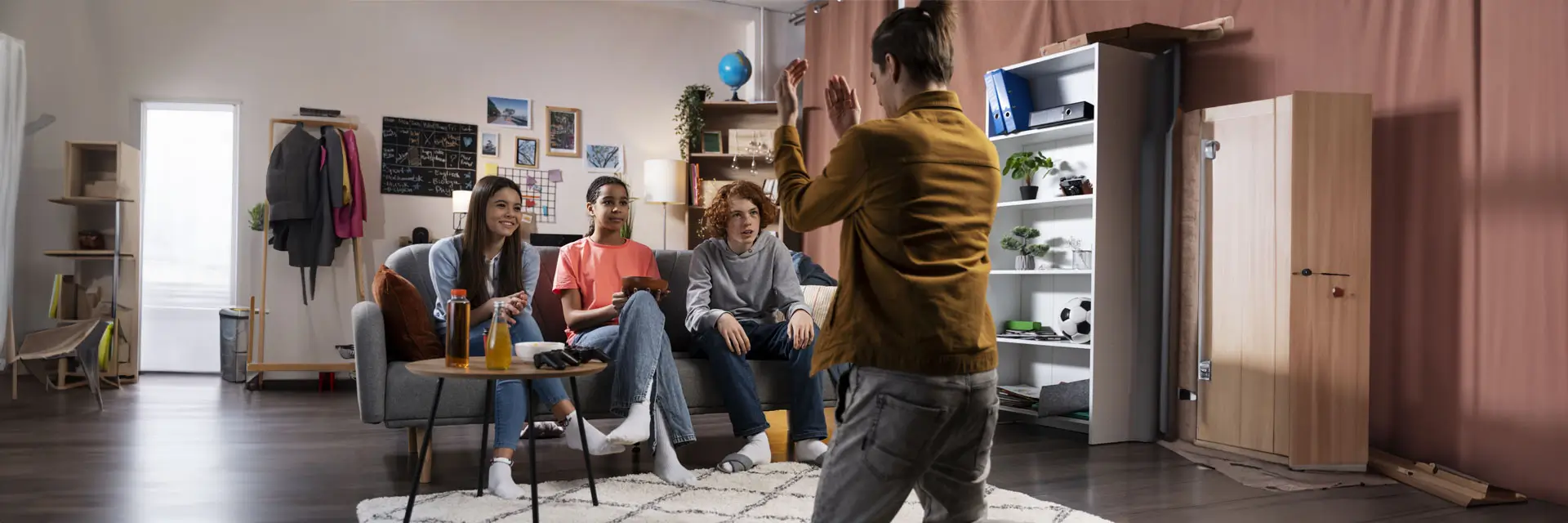Life doesn’t come with instructions, especially for young adults entering adulthood.” They face many challenges, like managing relationships, work, and finances. For some, this shift from being a teenager to an adult can be tough, causing stress, confusion, and sometimes risky choices. This is where transitional living programs for young adults can help.
Transitional living programs for young adults offer organized support to help them move from being dependent to becoming independent. These programs provide a safe and supportive place where young people can learn important life skills and become responsible, self-sufficient adults. They focus on building emotional strength, improving social skills, and encouraging independence in real-life situations.
Understanding Transitional Living Programs
A transitional living program is not just a place to live; it provides a mix of professional support, counseling, and training to help young adults successfully move into adult life. These programs are customized to fit each person’s needs, offering guidance in areas like education, finding a job, and mental health support.
These programs usually support young adults aged 18-25, an important age group that benefits from structured help. The National Institute of Mental Health says about 25% of young adults face mental health issues, showing the need for professional and emotional support during this time.
Benefits of Transitional Living Programs for Young Adults
Transitional living programs specifically help young adults manage the challenges common to their age group. They offer various benefits, which include:
- Stability: Many young adults find it hard to create stability after leaving home. Transitional living programs provide a structured setting that helps them grow and develop.
- Skill-Building: These programs teach life skills like managing money, cooking, and self-care, which are important for young adults to live independently.
- Emotional Support: The shift to adulthood can be emotionally tough. These programs offer access to therapists and counselors who help young adults handle stress, anxiety, and other emotional difficulties.
- Social Integration: For those feeling lonely or disconnected, these programs also offer a chance to build a supportive community. This interaction is important for forming healthy relationships and improving social skills.
Choosing the Right Transitional Living Program
Not all transitional living programs for young adults are the same, and selecting the right one can make all the difference. Here are some important factors to consider when choosing a program:
- Accreditation: Make sure the program is accredited and meets industry safety and support standards. Accreditation shows the program is reliable and offers quality services.
- Tailored Support: Find programs that provide personalized support plans. This ensures young adults get the specific help they need for their unique situations and challenges.
- Holistic Approach: A good program covers all areas of growth—emotional, educational, and social. It’s important to choose one that supports overall development.
- Long-Term Success: The best programs focus not only on short-term results but also on long-term success. They offer resources that young adults can use even after leaving, helping them stay independent.
According to the U.S. Department of Health & Human Services, structured programs that focus on long-term skills show higher success rates in terms of young adults gaining employment and maintaining stability.
How Transitional Living Programs Differ for Young Adults
Transitional living programs are not the same for everyone. Programs for young adults are different from those for other age groups because they are tailored to meet the unique needs and situations of this age group. Here’s what makes them different:
- Focus on Independence: Young adults are usually eager to become independent. Programs for them focus on building this independence by teaching decision-making, responsibility, and career skills.
- Education & Career Support: Unlike programs for teens or older adults, these programs focus on education and career help. They provide job training, resume workshops, and even connect young adults with internships or job opportunities.
- Life Skills Training: At this stage, learning practical skills is important. Programs for young adults teach skills like budgeting, time management, and communication, which are essential for living independently.
FAQs
Q: What skills can I learn in a transitional living program?
A: In a transitional living program, you can learn essential life skills like budgeting, cooking, time management, and job readiness. You’ll also build communication, decision-making, and problem-solving skills, helping you navigate everyday challenges and become more independent.
Q: How long do transitional living programs typically last?
A: Transitional living programs commonly extend from 6 months to 2 years, varying according to each person’s needs. The length of the program allows for gradual progress and ensures participants gain the skills and confidence needed for independent living.
Q: Are transitional living programs safe and accredited?
A: Yes, many transitional living programs are accredited and follow strict safety standards. Accreditation ensures the program meets quality guidelines, while safety measures protect participants, providing a secure environment where they can grow and develop.
Q: How do transitional living programs promote independence?
A: These programs encourage independence by providing opportunities for decision-making, personal responsibility, and career development, helping young adults build confidence and self-sufficiency.
Q: Who can benefit from transitional living programs?
A: Young adults transitioning into independent living benefit most from transitional living programs. Those seeking support with life skills, emotional guidance, and career preparation find these programs helpful for building a strong foundation for the future.
Conclusion
Transitional living programs for young adults are a valuable support system for those moving from adolescence to adulthood. They provide personalized help, including life skills training, emotional support, and social connections, all aimed at long-term success. With this structured help, young adults can confidently work towards becoming independent and living a fulfilling life.
Choosing the right transitional living program is an important decision that needs careful thought about several factors, like accreditation, available support services, and a well-rounded approach. By selecting the right program, young adults can build a strong foundation for their future and gain the tools they need to live independently.
BHouses is all about helping you take that next step. If you or a loved one is looking for a supportive place to grow, contact us today. We’re here to help you on your way to a brighter tomorrow.










